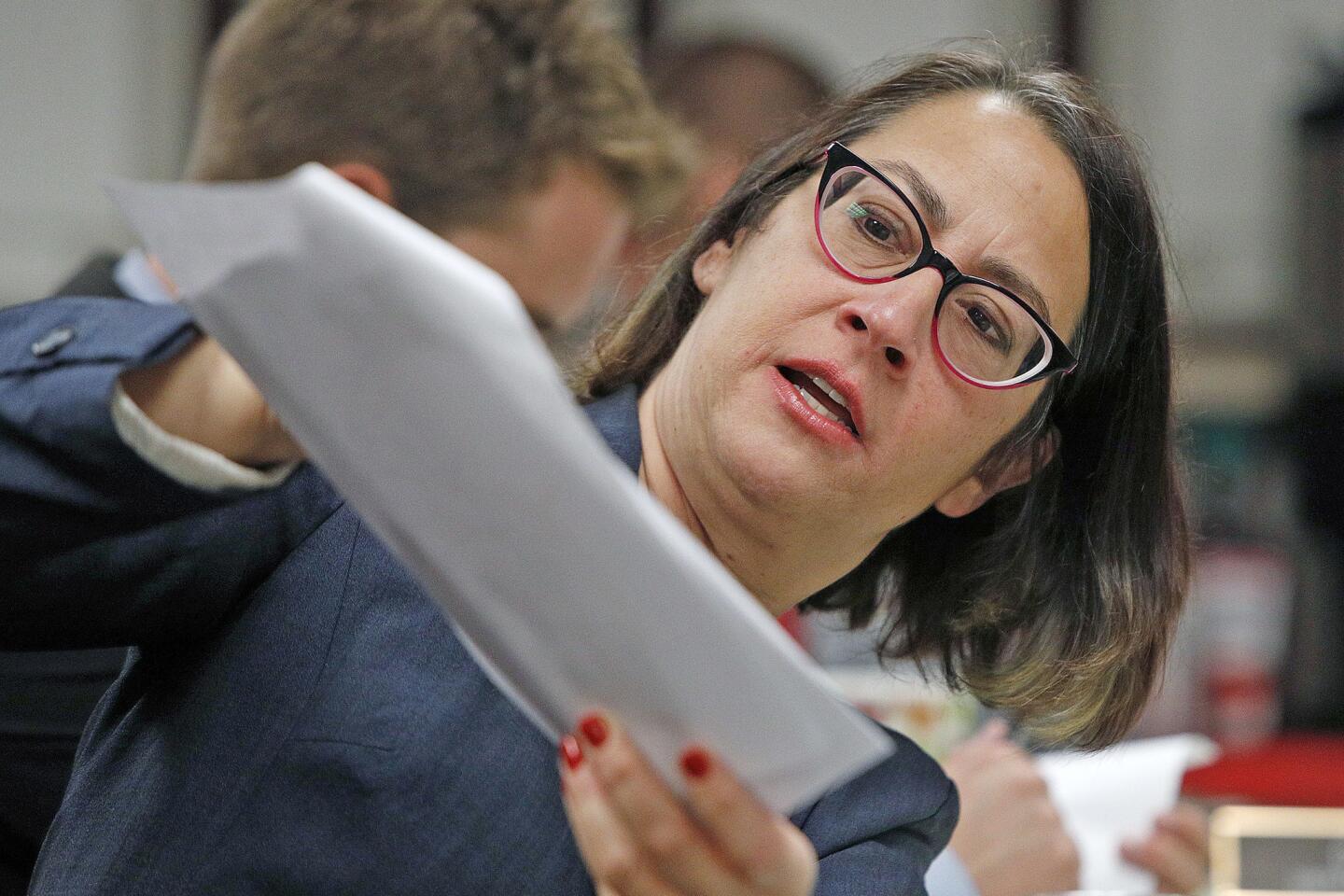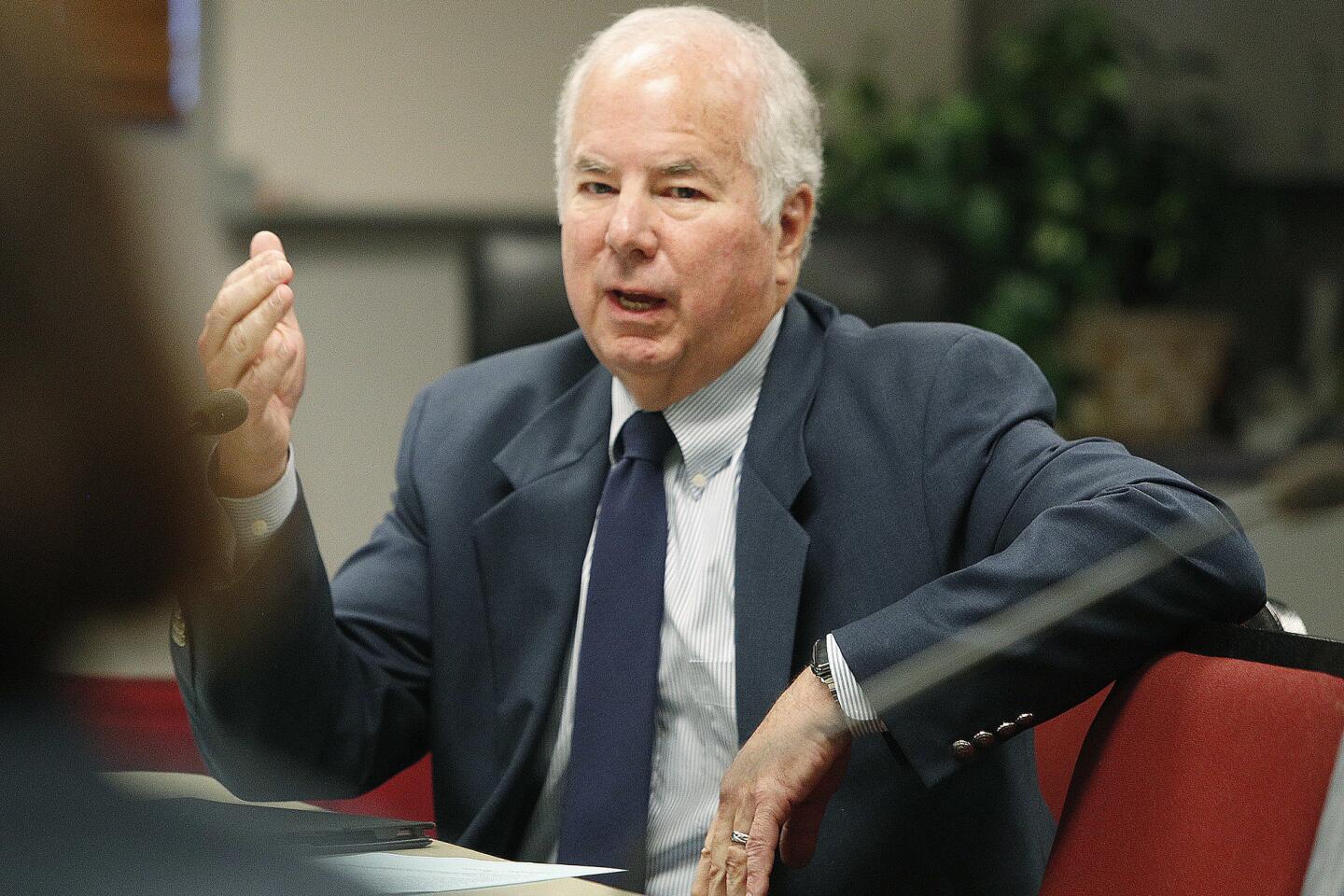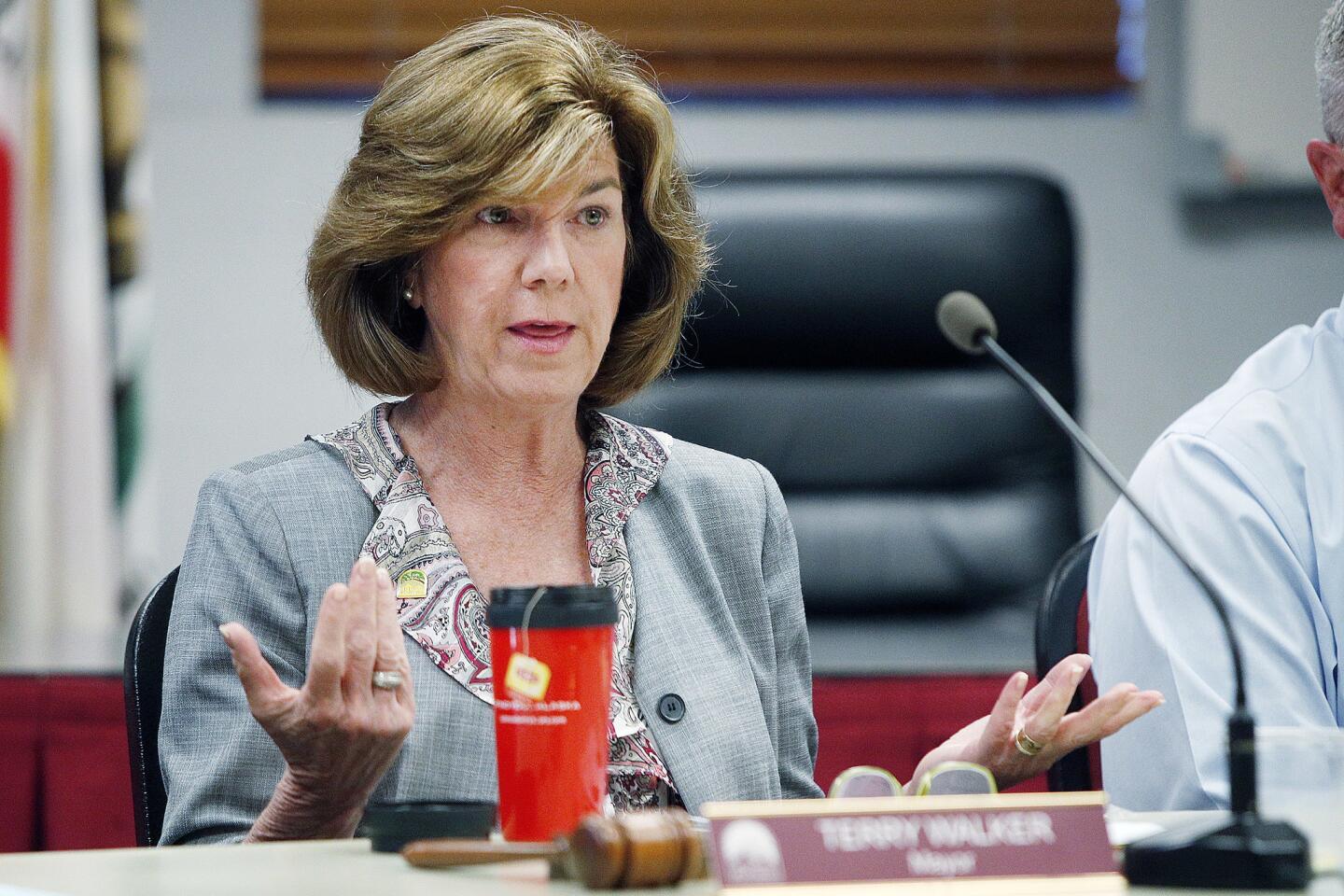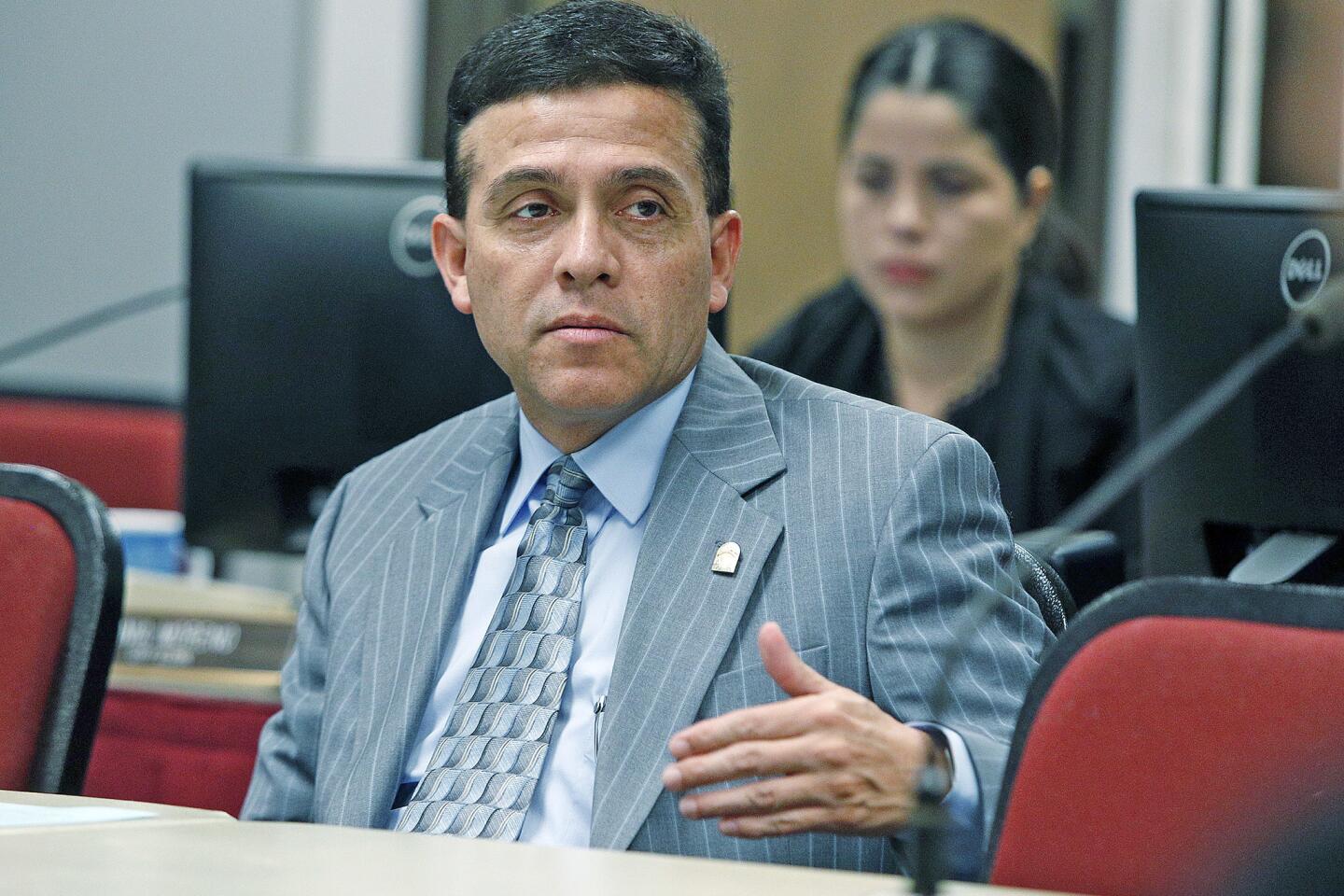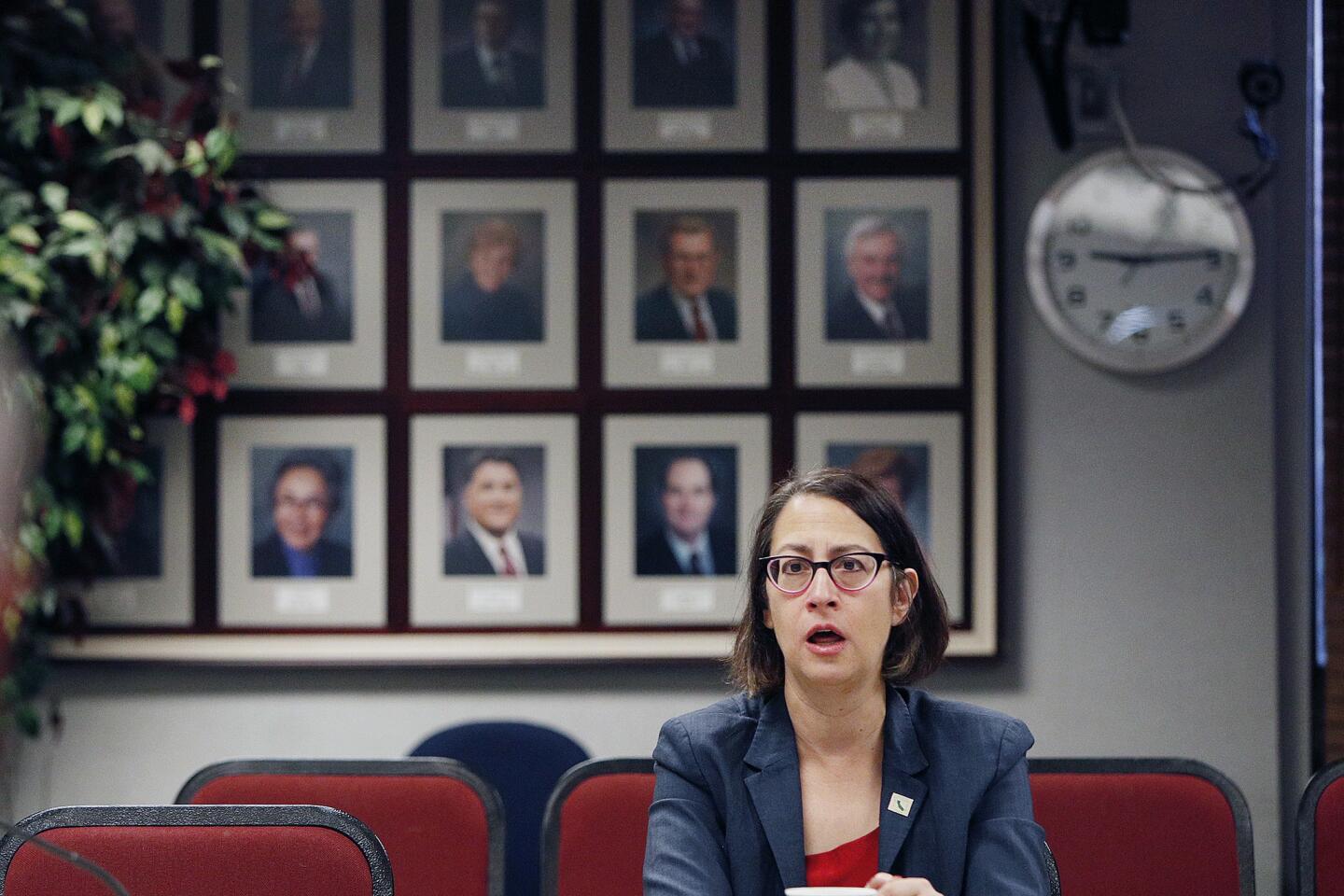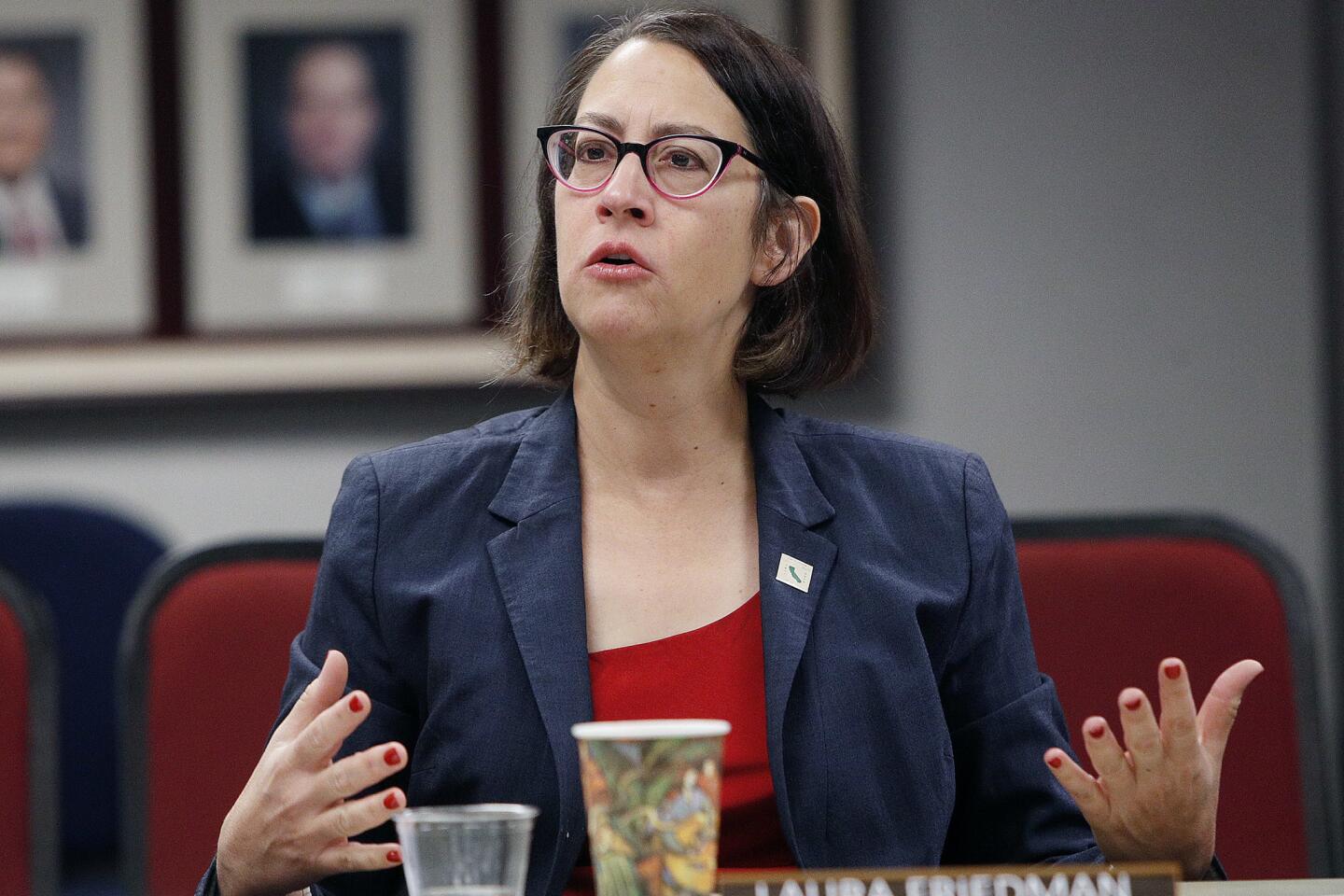Friedman talks state, local shop with LCF officials in special meeting
The La Cañada Flintridge City Council took advantage of a special meeting with state Assemblywoman Laura Friedman (D-Glendale) Monday, sharing the city’s viewpoints on a number of regional issues and seeking assistance on advancing local priorities.
During a two-hour breakfast meeting city officials covered a range of issues, from identifying state funds available for building sound walls along the Foothill (210) Freeway and restoring an eroding Flint Canyon Trail to regulating sober living facilities and cannabis delivery services.
Friedman and field representative Blake Dellinger took notes and shared updates on state bills that could impact the city, including bills related to safe driving and affordable housing.
In a discussion of sound wall funding, council members updated Friedman on a $5-million grant secured by state Sen. Anthony Portantino (D-La Cañada Flintridge) to help the city complete four of 20 previously identified sound walls using funds from SB 1, a gas tax whose repeal is on the November ballot.
State staffers amended Portantino’s grant, requiring the city provide matching fees equal to the grant amount and stipulating funds may be applied only to construction costs, not an estimated $2 million in design costs. As a result, the city will have to locate $7 million to receive the $5 million in state funding — if SB 1 survives the election.
“Quite frankly, the city doesn’t have $7 million in order to match the $5-million grant,” City Manager Mark Alexander told Friedman. “So we wanted to have a discussion with you this morning about seeking your assistance in maybe identifying some funding … to help us with the match requirement.”
Friedman said SB 1 was the best bet for helping La Cañada fund sound walls and advised officials to wait until after election night.
“After that, I’m more than happy to go out and see what I can do in the next couple of cycles of SB 1 funding,” she said. “I’ll also look to my staff to see if there’s funding beyond SB 1.”
Friedman shared recent legislative efforts to regulate the recent uncontrolled growth of sober living homes in residential neighborhoods by requiring cities be notified when licenses are applied for and putting such businesses into a probationary period, with penalties for noncompliance.
Mayor Terry Walker said she’d like to see municipalities have more local control over regulating facilities. Councilman Greg Brown shared his concern about what appears to be an increasing trend of state-issued mandates overriding local authority.
“We’re seeing more and more of Sacramento, particularly in the zoning area, taking over for local control,” he said. “That means you end up with a lot of a one-size-fits-all kind of solutions, and we know that doesn’t work.”
Friedman, who previously served on the Glendale City Council, said tensions between state and local governments are as old as the governmental system itself.
“The tension is really the most evident when you see the state stepping in the most with issues that are major issues, where the feeling is that they’re out of control and the cities are not acting,” she said. “Housing is a statewide crisis — there are a lot of folks in Sacramento who say when you have a statewide crisis, you can’t have a piecemeal approach.”
Still, she invited city officials to continue to share their local perspective on such matters.
“I don’t ever want to vote on something and then find out you all hate it,” she said. “I want to make sure I keep that connection with you. That’s what I’m there for.”
Twitter: @SaraCardine
